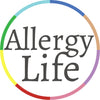Hay Fever is the common name for Allergic Rhinitis. Hay fever is an allergic reaction that occurs when your nose or eyes come in contact with a substance you are allergic to, such as pollen, dust mites, insect dander, animal dander, mould, etc.
Did you know? Despite being referred to as Hay Fever, this allergic reaction does not result in a fever.
SYMPTOMS
Some of the symptoms of Hay Fever (Allergic Rhinitis) may be characterised by:
- Itching nose
- Runny nose
- Sneezing
- Watery and itchy eyes
- Blocked (Congested) nose
- Postnasal Drip: Dripping of mucus from the back of the nose down the throat
- Snoring
The validity and severity of these symptoms are dependent on the individual, as determined by a qualified healthcare provider.
Hay Fever (Allergic Rhinitis) may also lead to additional complications. These complications may be characterised by:
- Daytime tiredness / Sleep disturbance
- Headaches
- Sinusitis (frequent sinus infection) in Adults
- Otitis (frequent ear infections) in Children
- Eustachian tube dysfunction (ETD)
The validity and severity of these complications and the link to Hay Fever (Allergic Rhinitis) are dependent on the individual, as determined by a qualified healthcare provider.
TESTING AND DIAGNOSIS
A Diagnosis can be conducted by a qualified healthcare provider who specialises in or has substantial experience working with allergies and Hay Fever (Allergic Rhinitis).
Diagnosis may require a review of medical history, physical examination and Allergy Testing (Skin Prick, Blood Test, Patch Test, etc) to test for triggers. Other tests may be conducted as determined by a qualified healthcare provider.
TREATMENT
If you experience or are in the presence of someone who encounters a serious reaction (this may include difficulty breathing, wheezing, throat tightening, swelling, collapse, etc), follow their action plan or emergency instructions and call or have someone call Triple Zero (000) immediately.
Common treatment* options for Hay Fever (Allergic Rhinitis) are:
- Allergen Minimisation- If the allergens causing Hay Fever (Allergic Rhinitis) are identified, minimising exposure to the allergens may reduce symptoms. Products used to minimise allergen exposure may also be used.
- Medication- Based on individual symptoms and requirements, the following medications may be prescribed by a qualified healthcare provider-
- Non-drowsy Antihistamine tablets, sprays, eye drops and syrups to reduce the symptoms. Different products may be used depending on the circumstances.
- Corticosteroid Nasal Sprays.
- Nasal Irrigation
- Using a saline solution with a neti pot/ neti lota or rinse bottle to rinse the nasal cavity to flush the allergens from inside the nasal cavity.
- Immunotherapy
- Provided through qualified healthcare providers, Immunotherapy or "desensitisation" is a treatment option conducted for Allergen-specific desensitisation. In some instances, it may make a person less allergic or more tolerant to the substance they are allergic to. Immunotherapy isn't a cure and usually doesn't make the symptoms disappear entirely, but it has been shown to reduce the symptoms. The results may differ for each individual, speak to a qualified healthcare provider to learn more.
It's important for anyone with Hay Fever (Allergic Rhinitis) to discuss treatments with a qualified healthcare provider to understand how to manage individual symptoms and also to set up a Treatment Plan.
*Please note any treatments and/or medications administered must be managed as directed by a qualified healthcare provider; otherwise, it could result in adverse effects.
RANDOM FACT
The term "Hay Fever" dates back to the 19th Century in 1819, when Dr. John Bostock, first described his own experiences with it. He named it "summer catarrh," believing it was caused by the smell of freshly cut hay. The term "Hay Fever" gained popularity in the mid-1850s and is still commonly used today. Fast forward to 1859, when British scientist Charles Blackley had a breakthrough. After a strong reaction he had to a bouquet of bluegrass, he carried out careful experiments and discovered that pollen, not hay, was the trigger for his reaction. Thanks to these early studies they set the path to have better ways to understand, communicate and manage Hay Fever (Allergic Rhinitis)
SUPPORT
- Allergy Life Australia Online Peer Allergy Support Groups- These monthly online Support Groups allow Families with allergies and Adults with allergies to have open and genuine discussions about various topics related to their life with allergies. These groups are inclusive of all allergies. Click here to learn more
- My Allergy Card- The My Allergy Card is a free custom Visual Allergy Alert to help people with allergies communicate. Click here to learn more
The information provided on Allergy Life Australia is to generally educate and inform you about living with allergies, intolerances and conditions, and is not intended as medical instruction or as a substitute for diagnosis, examination and advice by a qualified health care provider.




